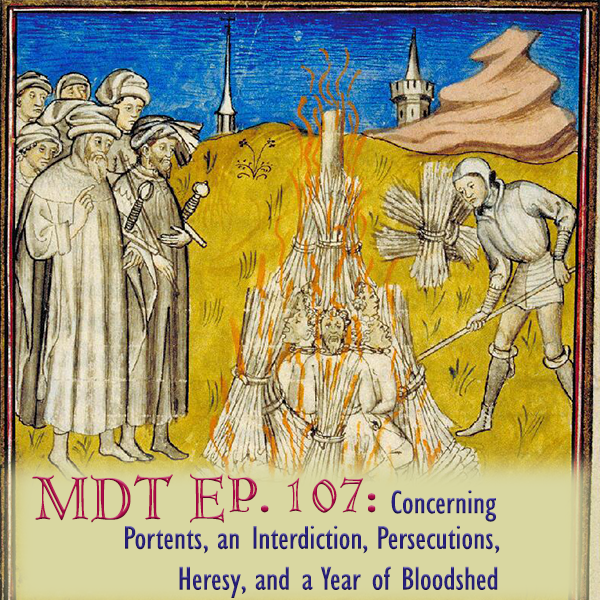- Download:
- MP3 Audio59 MB

We return to the Melrose Chronicle with a notably nasty run of years from 1205 to 1211. We also consider why people — medieval and modern — are so captivated by bad news.
Today’s Texts:
The Chronicle of Melrose. Edited and translated by Joseph Stevenson, The Church Historians of England, vol. 4, part 1, Seeley’s, 1856, pp. 79-242. Google Books.
References:
- Baumeister, Roy F., Ellen Bratslavsky, Catrin Finkenauer, and Kathleen D. Vohs. “Bad is Stronger than Good.” Review of General Psychology, vol. 5, no. 4, Dec. 2001, pp. 323-370, doi.org/10.1037/1089-2680.5.4.323
- Robertson, Claire E., Nicolas Pröllochs, Karou Schwarzenegger, et al. “Negativity Drives Online News Consumption.” Nature Human Behavior, vol. 7, 16 March 2023, pp. 812–822, doi.org/10.1038/s41562-023-01538-4
- Rozin, Paul, and Edward B. Royzman. “Negativity Bias, Negativity Dominance, and Contagion.” Personality and Social Psychology Review, vol. 5, no. 4, 2001, pp. 296-320, doi.org/10.1207/S15327957PSPR0504_2
- Trussler, Marc, and Stuart Soroka. “Consumer Demand for Cynical and Negative News Frames.” The International Journal of Press/Politics, vol. 19, no. 3, 2013, pp. 360-379, doi.org/10.1177/1940161214524832
Image: Detail of Amauricians being burned at the stake in 1209 from Toulouse Bibliothèque Municipale MS 512, fol. 251 (15th cent.)



JFC when is it going to get to the medieval history. I didn’t want pop psychology.